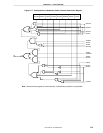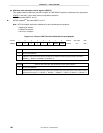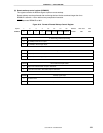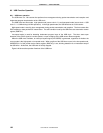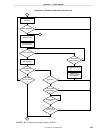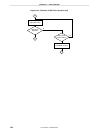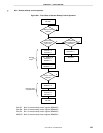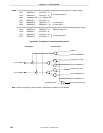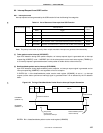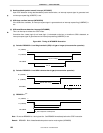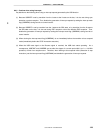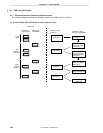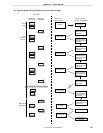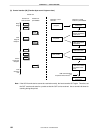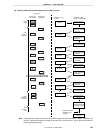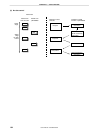
CHAPTER 8 USB FUNCTION
User’s Manual U12978EJ3V0UD
127
8.6 Interrupt Request from USB Function
8.6.1 Interrupt sources
Interrupt request sources generated by the USB function fall into the following five categories.
Table 8-4. List of Sources of Interrupts from USB Function
Interrupt SourceType of Interrupt Priority
Note
Name Trigger
Vector Table
Address
1 INTUSBTM USB timer overflow 0006H
2 INTUSBRT EOP detection when a USB token packet is received 0008H
3 INTUSBRD EOP detection when a USB data/handshake packet is received 000AH
4 INTUSBST EOP detection when a USB data/handshake packet is transmitted 000CH
Maskable
5 INTUSBRE Detection of transition from J state to K state or SE0 on the USB bus 000EH
Note The priority is the order of priority when multiple maskable interrupts are generated simultaneously.
(1) Token packet receive interrupt (INTUSBRT)
Upon EOP detection during token packet reception, an interrupt request signal is generated and an interrupt
request flag (USBRTIF) is set. If ADRRST (bit 2 of the token packet receive result store register (TRXRSL)) is
0, no interrupt request is generated because a token packet of another device exists on the bus.
(2) Data/handshake packet receive interrupt (INTUSBRD)
Upon EOP detection during data/handshake packet reception, an interrupt request signal is generated and an
interrupt request flag (USBRDIF) is set regardless of error at reception.
If DINTEN (bit 1 of the data/handshake packet receive mode register (URXMOD)) is set to 1, an interrupt
request (receive status synchronous interrupt) signal is generated when 11B is detected by the ID detection
buffer.
Figure 8-23. Timing of Data/Handshake Packet Receive Interrupt Request Generation
Packet ID detected
EOP received
Sync Data0 Data1 DataX CRC16 EOP
INTUSBRD
(DINTEN = 0)
INTUSBRD
(DINTEN = 1)
Data packet
receive status
synchronous interrupt
Data/handshake packet
receive interrupt
DINTEN: Bit 1 of data/handshake packet receive mode register (URXMOD)



